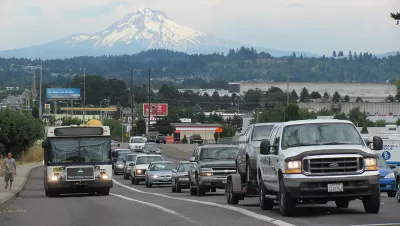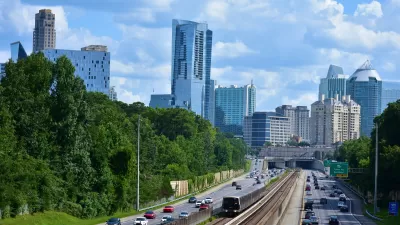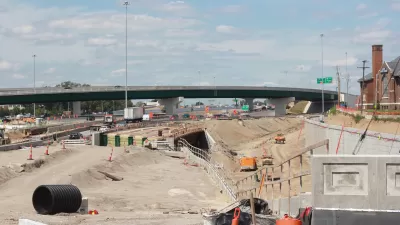The build out of mass transit and bicycle infrastructure hasn’t been the cure-all for shifting commuters from single-person autos to alternate modes of transit, as many had hoped. Maybe it's time we start looking at how to disincentivize driving.

Writing for The New Republic, Emily Badger has done the mental math, and at least for her taking mass transit makes more sense than driving to work in Washington, D.C. It's more convenient and less expensive. But in many parts of the country, driving remains the best alternative to get from here to there and will continue to be even as cities invest millions into alternate modes of transit. The problem is that there is no disincentive to driving, and the incentives to switch modes often come up short.
…relative to European cities, it is exceptionally hard in U.S. communities to implement real disincentives to driving.
There are ways to do it. We could reduce parking availability or raise parking rates. We could implement congestion pricing. We could roll back subsidies for gas and highways and public parking garages. We could tie auto-insurance rates or infrastructure taxes to how much people actually drive.
Badger notes that the imposition of disincentives would impact the poor the hardest. The solution may be a better combination of carrots and sticks, including programs like California's parking cash-out that makes not driving more attractive with a cash reward attached.
FULL STORY: America’s Cities Are Still Too Afraid to Make Driving Unappealing

Maui's Vacation Rental Debate Turns Ugly
Verbal attacks, misinformation campaigns and fistfights plague a high-stakes debate to convert thousands of vacation rentals into long-term housing.

Planetizen Federal Action Tracker
A weekly monitor of how Trump’s orders and actions are impacting planners and planning in America.

San Francisco Suspends Traffic Calming Amidst Record Deaths
Citing “a challenging fiscal landscape,” the city will cease the program on the heels of 42 traffic deaths, including 24 pedestrians.

Florida Home Insurers Disproportionately Dropping Low-Income Households
Non-renewal rates are highest in inland counties, not the coastal areas most immediately vulnerable to storms.

Half of Post-Fire Altadena Home Sales Were to Corporations
Large investors are quietly buying up dozens of properties in Altadena, California, where a devastating wildfire destroyed more than 6,000 homes in January.

Opinion: What San Francisco’s Proposed ‘Family Zoning’ Could Really Mean
Mayor Lurie is using ‘family zoning’ to encourage denser development and upzoning — but could the concept actually foster community and more human-scale public spaces?
Urban Design for Planners 1: Software Tools
This six-course series explores essential urban design concepts using open source software and equips planners with the tools they need to participate fully in the urban design process.
Planning for Universal Design
Learn the tools for implementing Universal Design in planning regulations.
Gallatin County Department of Planning & Community Development
Heyer Gruel & Associates PA
JM Goldson LLC
City of Camden Redevelopment Agency
City of Astoria
Transportation Research & Education Center (TREC) at Portland State University
Jefferson Parish Government
Camden Redevelopment Agency
City of Claremont





























